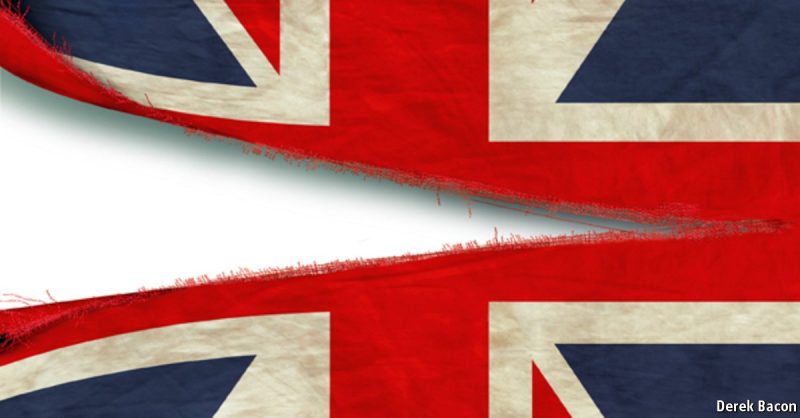Britain yesterday voted to opt out of the European Union with the “Leave” party gaining 52 percent over the”Remain” which stood at 48 percent at the end of the voting exercise.
Also, as the results were announced, the British Prime Minister, David Cameron announced his exit which has raised speculations enough to affect the pounds.
The effect of Britain’s choice to exit the EU has however been the major concern. In this article, Forbes analyses the ways in which Britain’s exit will affect the Premier League and Soccer worldwide.
Read below:
The withdrawal of the UK from the European Union will touch almost every facet of British life, soccer included.
Here is a snapshot of how soccer will – or may – be impacted by Thursday’s decision of the British electorate to leave the European Union.
1. From now and until a full negotiated agreement is concluded British teams will be forced to deal with all the risks associated with uncertainty and volatility. This volatility will impact on all facets of operations including players, broadcasters, sponsors and the fan base.
2. The UK pound immediately dropped in value and it could drop more in the coming months. The devaluation means that any British club will have to pay more when quoted a price by a foreign club in any other currency than the pound. It also means that Premier League teams will become “less expensive” to potential foreign owners. By the same token existing foreign owners will see the value of their assets shrink until the pound recovers its pre-vote value.
3. Transfer fees are often staged and the drop in the pound will have a negative impact on finances if the club has not protected itself through some form of currency hedging.
4. The Premier League is about to start a new three-year cycle of broadcast deals. Domestic TV deals with BT and Sky should not be impacted directly. But any foreign deals quoted in currencies other than the UK pound could hurt the Premier League on account of the devaluation of the pound. Conversely any foreign broadcasters that committed to paying in pounds could see a significant saving if the pound remains in the dole drums.
5. Britain is awash with foreign players – both from the EU and others from non-EU countries. Any players that regularly take their earning offshore are going to experience an immediate hit as the pound will be worth less when converted to foreign currencies such as the dollar.
6. The ability for players to move freely at the conclusion of their club contracts has been a fact since the EU ruled such over 20 years ago when it handed down the Bosman rule. The Bosman rule is a European Union law and it would no longer hold sway in Britain. However, in practice, it is difficult to see how the clock could be turned back, EU or no EU.
7. Up until the vote, EU players were free to sign for British teams. Non-EU players, including those from North America, faced a series of tests before qualifying for a work permit. The rules for non-EU players, in the short-term anyway, are unlikely to change.
For EU players it is almost certain that once the transition phase concludes and the UK has fully withdrawn from the EU, these players will be forced into the same process as non-EU players. Some of the initial rhetoric of “players losing their right to play” in the UK is excessive and over the top.
These players will just have to join the other less responsive and less timely line. Whichever process is finally put in place it is unlikely to impact players of great talent and reputation.
However, it will impact the EU players who have yet to prove themselves. An example would be the likes of French player N’Golo Kanté who arrived last summer at Leicester as a largely unknown player. Kanté morphed into a Premier League star as Leicester’s dream season evolved.
Would Manchester United have been able to sign a young Cristiano Ronaldo? In years to come these types of signing may not happen.
8. Premier League clubs spend a lot of money on scouting and recruiting European Union qualified youngsters for their Academy systems. That avenue will rapidly lead to a dead end. Conversely, the Premier League and others may be forced into developing “homegrown” talent, an area that many have accused them of neglecting.
9. British players plying their trade in other European Union leagues are relatively rare. It Nonetheless, British players, managers and coaches will, in the near future, no longer benefit from free movement to EU clubs. Many EU leagues restrict the number of non-EU players.
10. As the transition arrangements are negotiated there may be a temptation for the wealthy Premier League clubs to stockpile EU based players in the hope that they can negotiate a grandfather clause that might allow such players to slip under the work permit wire.
11. Last but not least, expect the words “salary cap” and “Premier League” to become a hot topic. A few months ago the Premier League tweaked and then extended its “short term control measure” for another three years.
The short term measure is essentially a form of a soft salary cap. The short term measure is a carefully crafted mechanism to avoid contravening a core European Union regulation that guarantees the free movement of capital and labor.”Hard” salary caps run afoul of that EU principle.
With such a principle negated the Premier League and other UK leagues could move aggressively to institute hard salary caps.

